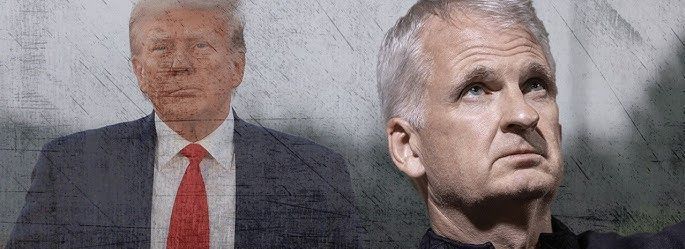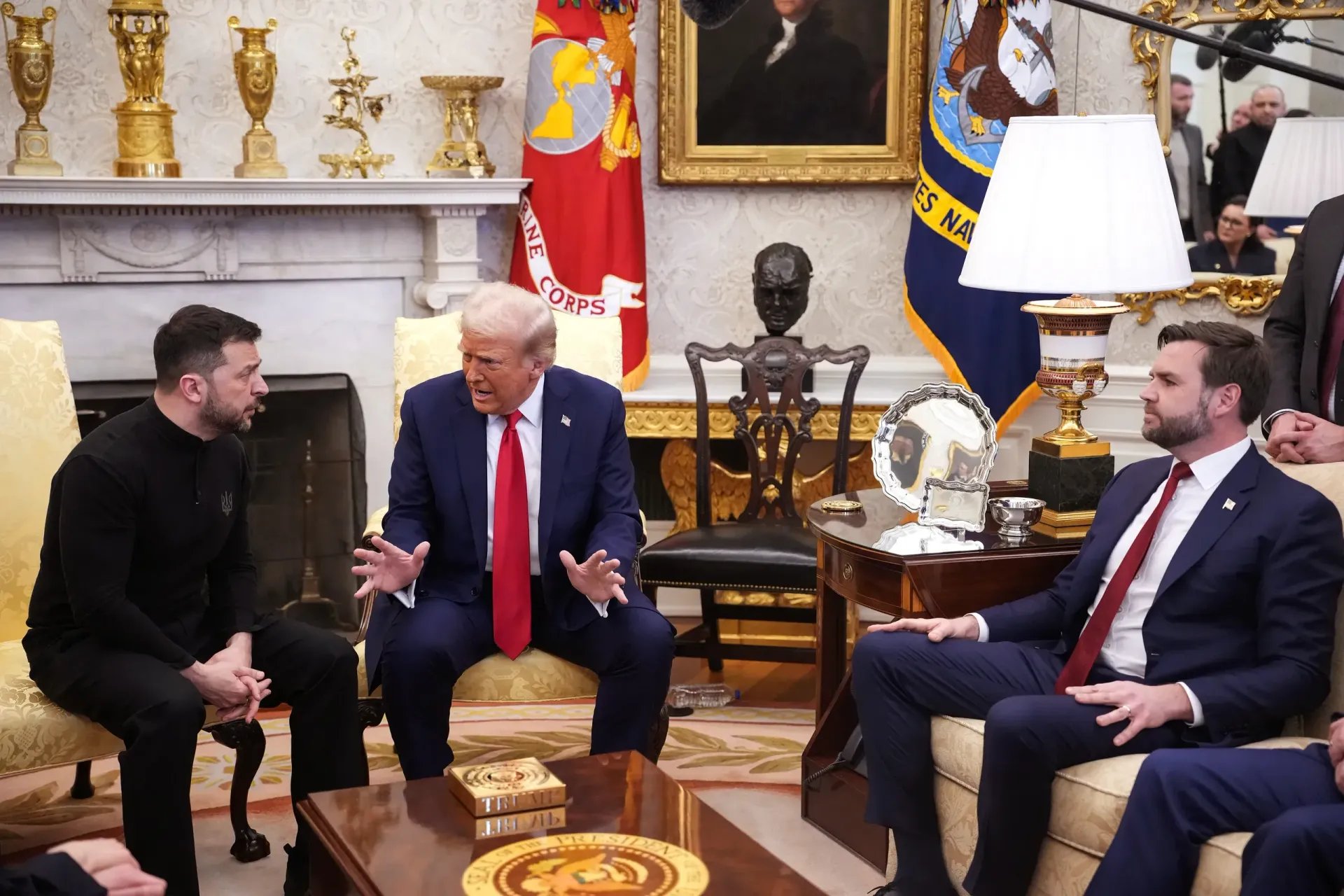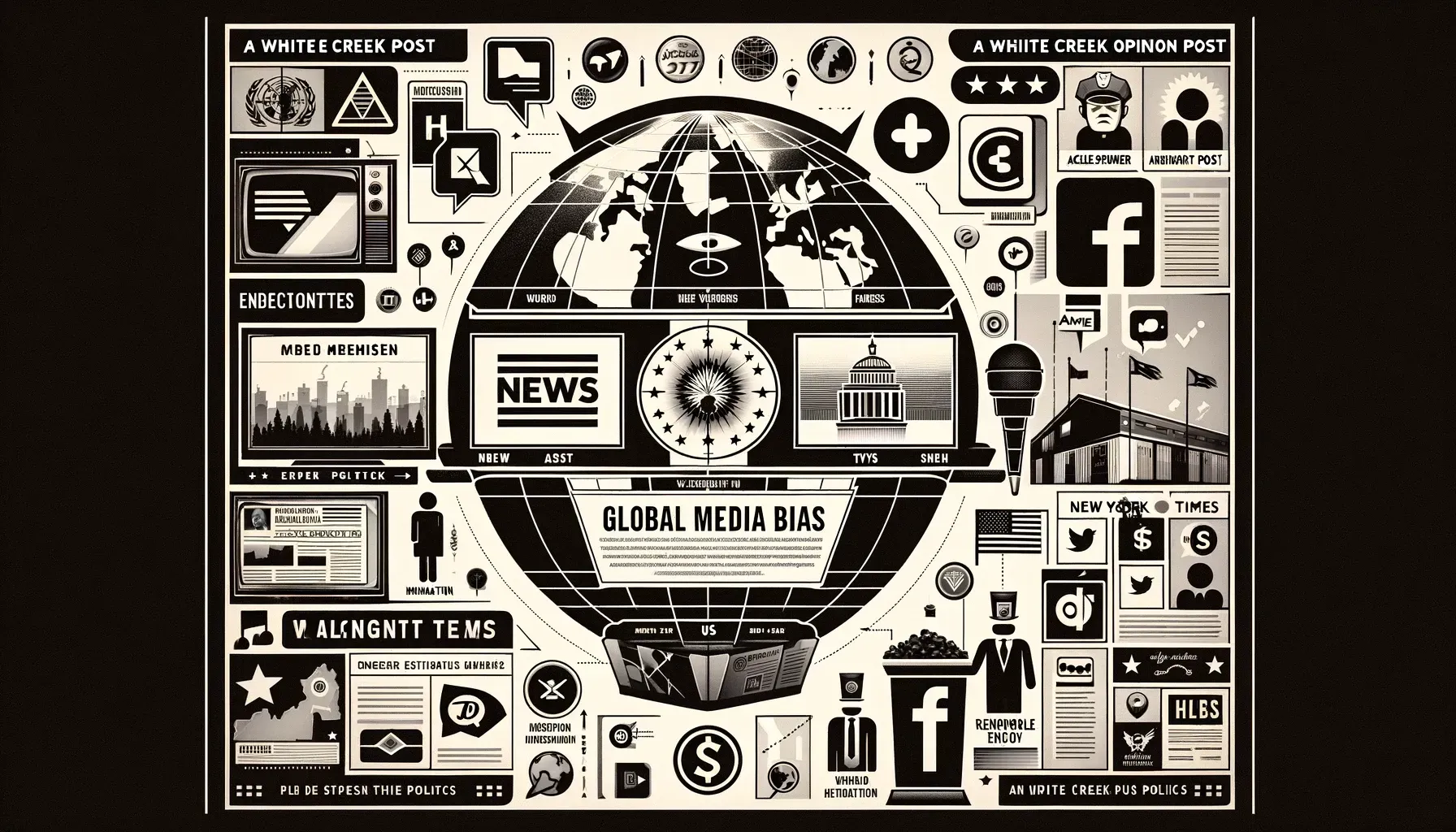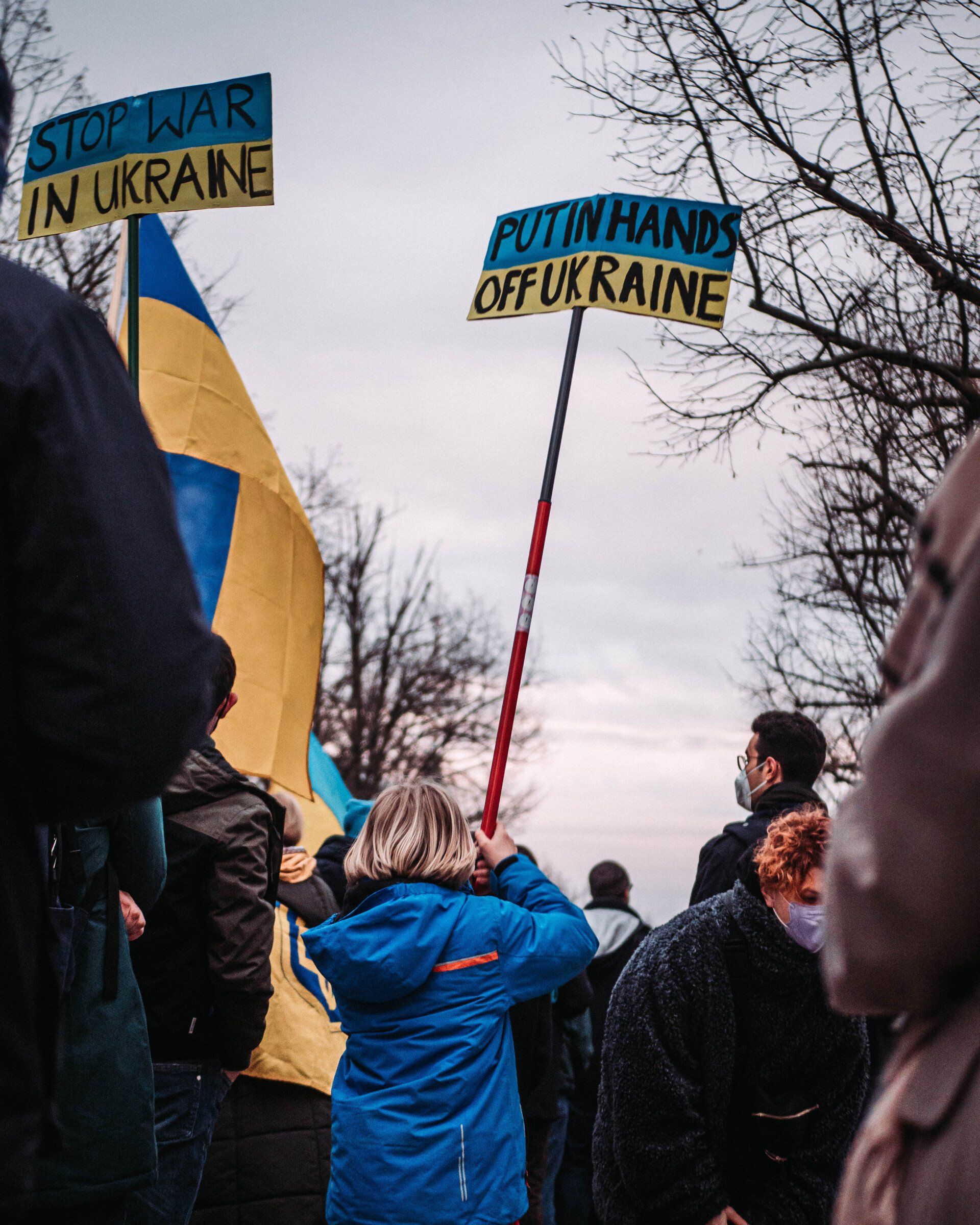Geopolitical Focus | November, 2024
Geopolitical Focus – November, 2024: Aftermath of the US Election & Trump's Impact on the Global Scale
The US Election is Over, sort of. The man nobody expected to win has claimed victory—a triumph in the war of words, but not on the battlefield. There are now ample tools, such as tariffs, and a coalition of like-minded leaders ready to build a world based on tolerance and cooperation, rather than the elite-driven, war-mongering, two-class system perpetuated by the Democrats.
International cooperation may also be on the horizon. France, England, and Germany have all faced significant challenges due to the Ukraine conflict, leaving dissatisfaction among their people. For these nations, the time is ripe for a renewed focus on diplomacy. While optimism about change is growing after four years of preparation for this victory, there remain those who cling to outdated policies. Positive signs suggest a redirection of resources to more constructive efforts. However, under Biden and Blinken, many still believe Ukraine can win and are willing to deliver the goods , despite the high costs. The results in Gaza and Ukraine reflect clear losses. For some, war and propaganda are indistinguishable; for others, peace is the ultimate goal. But the significant challenges facing Ukraine, including a growing issue of deserters , remain overlooked.
Ironically, Biden promised to save democracy in the U.S., but he and his administration seem to have a skewed understanding of the term. While many right-wing leaders champion peace, the contrast is stark. Listening to figures like Putin, one wonders: does he sound any more debilitated than Biden?
The EU and NATO pundits often display clear biases. When the Georgian people elect a pro-Russian parliament, it’s labeled as interference. However, a pro-European win in Moldova is deemed entirely legitimate. The U.S. and EU might be better off stepping back and allowing the UN to mediate on a global scale. Although Antonio Guterres attended the BRICS summit, he is no longer regarded as a democratic leader. Perhaps Trump will convene a global peace summit early in 2025 to lay the groundwork for lasting diplomacy.
The EU may eventually realize that Obama-era tactics like spying on Angela Merkel are not conducive to diplomacy. Yet Ursula von der Leyen still pushes for a European spy agency. Perhaps she doesn’t trust the CIA, Mossad, or MI5. One wonders how Europeans feel about funding dual armies: one for their homeland and one for the EU.
Populism is populism, yet the global media often fails to understand the concept of people, popularity, and democracy. Leaders who follow election rules are labeled populists. By this measure, even Bernie Sanders might qualify—though communism rarely attracts mass appeal.
As Western democracies face internal struggles and increasing taxation, BRICS nations appear poised to assert global influence. With Trump in power, the U.S. may resist the socialist agenda and focus on peace through strength and diplomacy, ensuring prosperity and stability.
Some of those who have repeatedly been referred to as "populists" in a pejorative sense have subsequently embraced the term while seeking to shed it of negative connotations.[24] The French far-right politician Jean-Marie Le Pen for instance was often accused of populism and eventually responded by stating that "Populism precisely is taking into account the people's opinion. Have people the right, in a democracy, to hold an opinion? If that is the case, then yes, I am a populist."[24] Similarly, on being founded in 2003, the center-left Lithuanian Labor Party declared: "we are and will be called populists."[28]
Following 2016, the year which saw the election of Donald Trump as president of the United States and the United Kingdom's vote to leave the European Union—both events linked to populism—the word populism became one of the most widely used terms by international political commentators.[29] In 2017, the Cambridge Dictionary declared it the Word of the Year.[30]
The Axis of Evil – Losers and War, the definition of Evil by GWB, the Losers by the Elitist in the US Media, and the AXIS of War, the Western Democracies. The Words of War are not a definition of Donald Trump, they have been used for as long as the World exist. What has changed is the recipients, not on the World stage, that is part of the Game, but within the Media and the public here in the US, but it is not the Words they are upset about, it is only the one who speaks it. So, when the left globally define everyone not in alignment NAZI and Hitler or any other definition of Evil, it is all right.
Their concern on a global scale are a Woke War and Wars on sentiment, there is not a lot of historical reasoning and consideration, it is all about the moment, sympathy and emotions, and the War Mongers globally know how they play it, but listening to controversial voices, or different opinions, that may resolve issues, nope. (you may need to hit the translate button)
How do we prevent World War III? Eurasia is the great hope for peace at the Valdai Conference in Sochi, on a snow-covered high plateau, a kind of Switzerland on the Black Sea. President Putin and Foreign Minister Lavrov come to classify the US elections.
So, what is the advice to Trump, probably plenty on the World stage but have the Leaders in support of the Ukraine learned anything, and continue the fear monger, Russia is bad approach or are we at a point to talk with all Leaders. It is astonishing, in 2016 everyone was afraid of War – even nuclear, then came Biden in 2020 and joy and hope, but since we have never been closer to WWIII? But all was good in democratic countries (per Media), and as soon as the US election is over, the bad one is coming? The
foundation for Peace, excellent diplomatic relations, good economy, a solid justice system, and yes peace through strength, but please without Nukes, there is plenty of firepower without. There used to be a
League of Nations, and an
Economic Community, and it worked well, perhaps with the drawback of currencies, but then came the “visionaries” to
create the EU, that has brought nothing but cost and division, and lots of politicians and lawyers to power, for all the wrong reasons. It is a completely unnecessary construct in today’s time, modelled after the US, which we all know works best if the Power resides in the States. You can note with sarcasm that they protect Europe from Russia; they are the co architects with the Expansion of NATO. The Pyromaniac at the Water hose. Here some
US visionaries, among many others, peace through strength, but everyone has a place in this World, some in Prisons, others as refugees, but all within a countries order, otherwise the citizens become the prisoners. Hello California?
In Germany , Chancellor Olaf Scholz is battling a myriad of challenges, from a faltering economy to political opposition. His administration’s green energy mandates and perceived lack of leadership have alienated voters. Calls for re-election are growing louder, but logistical hurdles, such as delays in printing ballots, have postponed immediate action. As Germany navigates its internal crises, many wonder if the nation is shifting further to the right politically.
The German economy, once a European powerhouse, is facing severe de-industrialization. Skyrocketing energy costs have driven companies like Volkswagen to cut jobs and shutter factories. Industrial production has plummeted, with many attributing this decline to short-sighted climate policies and a lack of strategic planning.
In the UK, Keir Starmer’s government is under increasing scrutiny. Once hailed as a savior, Starmer now faces criticism for his leadership and policies. Figures like Elon Musk’s father have openly condemned the UK government’s actions, labeling them as authoritarian. Meanwhile, conservatives are rallying behind more economically focused and pragmatic leadership. As public sentiment shifts, the possibility of a political reset looms large.
The younger generation in Europe has been influenced by socialist ideals, but many question whether these policies can deliver long-term prosperity. Critics argue that increasing taxes and centralizing control have only exacerbated economic struggles, driving investors away and stifling innovation.
As Europe wrestles with these challenges, the dependency on the U.S. remains a central issue. Military and economic reliance on American support has limited Europe’s ability to act independently on the global stage. According to historian Yuval Noah Harari, Europe’s focus on trivialities has further weakened its geopolitical stance. Harari notes that the continent’s overreliance on U.S. technology and military power hampers its potential for self-reliance.
The Western Global Demise is evident as BRICS nations strengthen their influence. Countries like England, France, and Germany are raising taxes and burdening their citizens with increasing costs. However, in the U.S., Trump’s administration offers a stark contrast, focusing on economic growth, diplomacy, and peace through strength. As Europe grapples with socialist policies, the U.S. may chart a different course, prioritizing individual freedoms and economic innovation.
The government spending ratio is to increase by 2 percentage points of GDP, and taxes are to be increased by 40 billion pounds. Higher capital gains and inheritance taxes, the abolition of tax privileges for rich foreigners, higher social security contributions, etc. will drive investors out of the UK and drive up interest costs. Large corporations from the aviation and energy sectors and property owners are also to pay massively more taxes.
The young socialists in Europe continue to follow the principles of the 1968 movement . These ideals, rooted in the Communist Manifesto, focus on centralized control and collective benefit.
In doing so, the Jusos are faithfully following the "Communist Manifesto" of 1848, in which Karl Marx and Friedrich Engels nationalize and centralize and use for the benefit of society as a whole large parts of the communist workers' worldview, which was later referred to as "Marxism." In doing so, it is developed: "Once political power has been achieved, the use of violence will be unavoidable. The following measures must be implemented:
1. Expropriation of all land ownership.
2. Implementation of a strong progressive tax system.
3. Abolition of inheritance rights.
4. Confiscation of property from emigrants and rebels.
5. Centralization of financial institutions under state control.
6. Nationalization of transportation systems.
7. Establishment of state-sponsored industrial initiatives.
8. Creation of a mandatory industrial workforce.
9. Integration of urban and rural industries.
10. Provision of free public education and the abolition of child labor.
And what do the "Media Elite" have to say about it? Increased poverty and taxes, while peace, prosperity, and common sense are dismissed as unrealistic ideals?







